Business in the Netherlands, Amsterdam

Port of Rotterdam (Netherlands). Dutch Foreign Trade. Gas
- Introduction to the Kingdom of the Netherlands
- Dutch Economy
- Business in Amsterdam
- Dutch International Trade
- Port of Rotterdam (the largest port in Europe)
- Investment in the Netherlands
- Access to the Dutch market
- Business Plan for the Netherlands
The objectives of the subject “International Trade and Business in” the Netherlands (Holland)” are the following:
- To analyze the Dutch Economy and Foreign Trade
- To know the trade opportunities in the Dutch market
- To analyze the trade relations of the Netherlands with the country of the student
- To know the Trade Agreements of the Netherlands as a member of the EU
- To develop a business plan for the Dutch market

The Subject “Foreign Trade and Business in the Netherlands” belongs to the following Online Programs taught by EENI Global Business School:
Doctorate: European Business, World Trade.
Masters: International Business, Foreign Trade.

 Masters adapted to Dutch Students.
Masters adapted to Dutch Students.
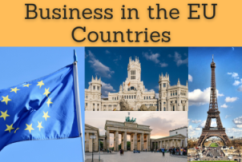
Languages:  +
+  Paises Bajos
Paises Bajos  Pays-Bas
Pays-Bas  Países Baixos.
Países Baixos.
- Credits of the Subject “Doing Business in the Netherlands”: 1

- Duration: one week
International Trade and Business in the Netherlands (Holland)
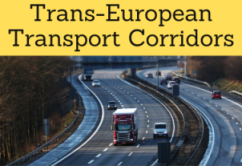
Transport and Logistics in the Netherlands:
- Port of Rotterdam
- North Sea-Baltic Corridor (Finland, Belgium)
- North Sea-Mediterranean Transport (Ireland, France)
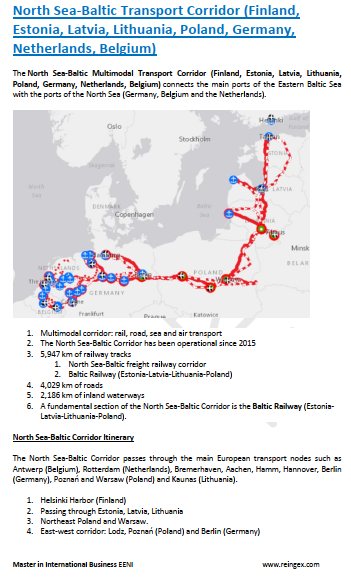
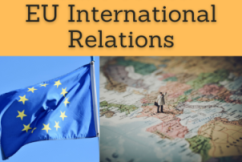

Dutch Preferential Access and Trade Agreements:
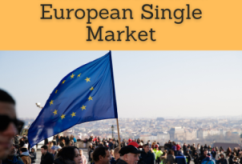
- The Netherlands and the European Economic Area
- The EU
- Economic and Monetary Union
- European Customs Union
- European Single Market
- The EU Services Directive
- European Digital Single Market
- As a member of the EU, the Netherlands is a beneficiary of the EU Trade Agreements
- Council of the Baltic Sea States (observer country)
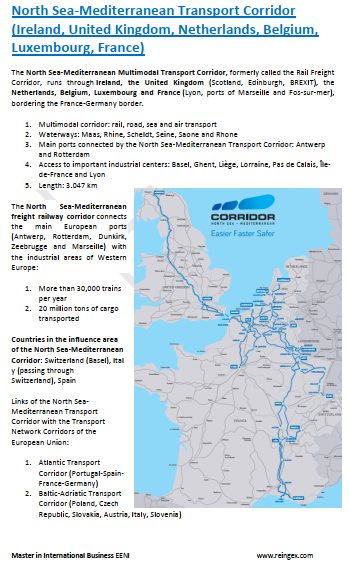

- WTO
- GATS
- Agreement on the Application of Sanitary Measures
- Agreement on Technical Barriers to Trade
- Agreement on Preshipment Inspection
- Agreement on Safeguards
- Trade Facilitation Agreement
- WCO
- International Convention on the Harmonization of Frontier Controls of Goods
- ICC
- COTIF Convention (Rail)
- BIC
- Chicago Convention (ICAO)
- IMO
- Convention for Safe Containers
- Istanbul Convention
- Rotterdam Rules (Sea)
- CMR Convention
- CIM & CIT Rules (Rail)
- IRU
- TIR Convention
- Guidelines on Safe Load Securing for Road Transport
- International Chamber of Shipping
- Customs Convention on Containers - not a member
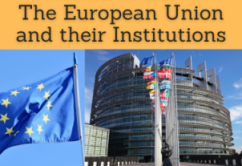
- The EU
- ECB
- EIB
- EU-CELAC Summit
- EBRD
- OSCE
- UNECE

- Inter-American Development Bank
- African Development Bank
- ECLAC
- ESCAP
- Asian Development Bank
- OECD
- UN
- WB
- WTO
- IMF
- Asia-Europe Meeting
The Netherlands is an observer country to the Association of Caribbean States (ACS).
The Kingdom of the Netherlands (Europe).
- Capital of the Netherlands: Amsterdam and The Hague
- Official Language: Dutch
- Dutch Area: 41,543 km²
- Dutch Population: 17 million people (one of the most densely populated countries in the world)
- Type of Government of the Netherlands: Unitary parliamentary constitutional monarchy
- Borders of the Netherlands: Germany and Belgium
- Dutch Independence: 1581 (Spain)
- The three Caribbean islands of Bonaire, St. Eustatius and Saba belong to the Netherlands and are considered as overseas territories of the EU, i.e., they are not part of the customs union or Schengen area
- Indonesia (Dutch East Indies, independence in 1949), Suriname and the Netherlands Antilles, belonged to the Dutch colonial empire
- Abolition of Slavery: 1814
- The headquarters of the International Court of Justice (United Nations) are in The Hague
Religion in the Netherlands: Christianity.
- Catholicism: 27%
- Protestantism: 17%
- The Baptist Church was created by John Smyth in the Netherlands

The Netherlands belongs to the European Economic Area.
Economy of the Netherlands.
- The Kingdom of the Netherlands is one of the most developed countries in the world, occupying the third place in human development (United Nations Human Development Index)
- According to the World Bank and IMF, the Netherlands is the 18th largest economy in the world
- The global financial crisis triggered a major crisis
- The Netherlands has been a member of the EU since 1958
- Currency of the Netherlands: Euro (1999)
- Dutch GDP (nominal): 836,000 million EUR
- GDP per capita of the Netherlands: EUR 50,087
- 79% of the Dutch workforce works in the services sector
- The Netherlands is the eighth most competitive country in the world
- The main Dutch industrial activities are food processing, chemical industries, petroleum refining, electric machines
- The main Dutch companies are Royal Dutch Shell (oil), ABN AMRO Bank, Philips (consumer electronics), Heineken (Beers), Unilever (consumer products), KLM
- Many non-Dutch companies are based in the Netherlands, such as EADS, LyondellBasell and IKEA, due to low corporate taxes
- The Netherlands has significant natural gas resources

Dutch Foreign Trade
- Dutch agri-food sector is crucial and highly export oriented (the third largest food product exporter in the world)
- The main Dutch Exports are natural gas, machinery, chemical products, fuels, food products
- Top Dutch exports destinations: Germany (24%), Belgium, France, the UK, Italy
- The main Dutch Imports are machinery, transport equipment, chemical products, fuels, foods, textiles
- The main suppliers of the Netherlands are Germany, China, Belgium, the UK, Norway
- As a member of the EU, the Netherlands is the beneficiary of the EU trade agreements with the ASEAN, Egypt, Jordan, Lebanon, Ukraine, Moldova, Georgia..
- The Port of Rotterdam is the seventh largest port of the world for container traffic and the largest European port. Distances from the Port of Rotterdam to:
- Port of Durban (South Africa): 8,156 Km / 34 days
- Port of Duala (Cameroon): 5,092 Km / 21 days
- Port of Dakar (Senegal): 2,558 Km / 8 days
- Port of Mombasa (Kenya): 7,120 Km / 29 days
- Port of Casablanca (Morocco): 1,681 Km / 7 days
(c) EENI Global Business School (1995-2024)
We do not use cookies
Top of this page


